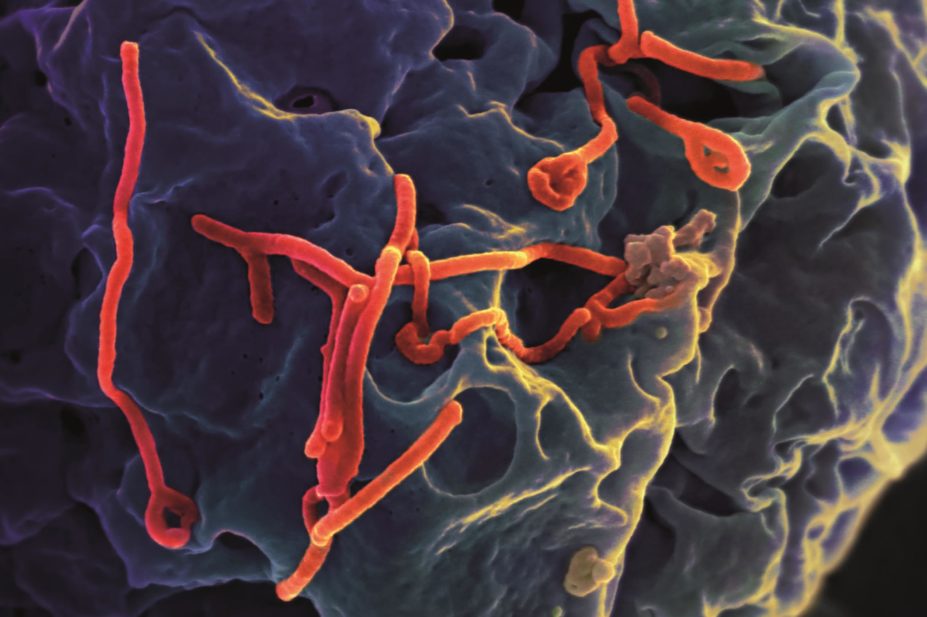
National Institute of Allergy and Infectious Diseases (NIAID)
The severity of the Ebola outbreak in West Africa in 2014–2016 was impacted by a lack of proven therapeutic agents against the virus.
In March 2015, an open-label trial of a promising immune-based Ebola treatment called ZMapp was launched. It included 72 patients with confirmed Ebola infection who all received standard care (intravenous fluids, electrolytes, blood pressure and oxygen monitoring); half were randomly assigned to also receive three intravenous infusions of ZMapp every third day.
After 28 days, 22% of patients in the ZMapp group had died compared with 37% of those in the standard care alone group, equating to a 40% reduced risk of death.
However, reporting in The New England Journal of Medicine
[1]
(online, 13 October 2016), the researchers conclude that although ZMapp appeared beneficial, the result did not meet a prespecified statistical threshold for efficacy, potentially owing to inadequate trial recruitment.
References
[1] Prevail II writing group for the multi-national Prevail II study team. A randomised, controlled trial of ZMapp for Ebola virus infection. NEJM 2016;375:1448-1456. doi: 10.1056/NEJMoa1604330.

